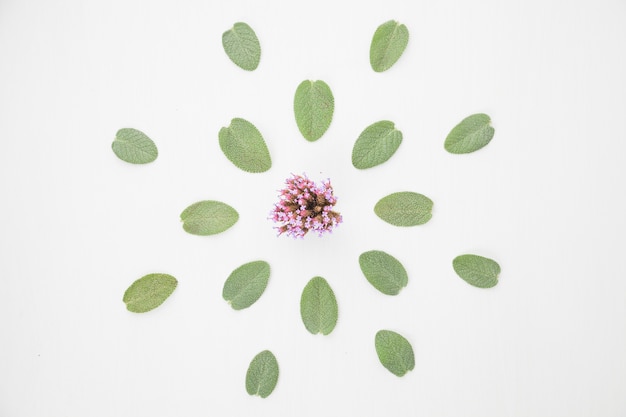
I really like how gentle lavender is, but oregano is the complete opposite—it’s super powerful and strong! This amazing herb offers plenty of benefits and can be used for health purposes at home.
Oregano, or Origanum vulgare, is an aromatic and slightly bitter herb from the mint family. Its name comes from a Greek term that means “mountain of joy” or “delight of the mountain.” Although it originally grows in warm, dry climates like the Mediterranean, you can now find it cultivated in many parts of the world.
This flavorful herb is commonly used in Italian, Greek, and Spanish cuisines. It features prominently in seasoning mixes, such as Italian seasoning, and goes great with meats, tomato-based dishes, and eggs. I always toss some into my homemade soups and stews, especially when I’m not feeling well, because it’s believed to have antibacterial properties.
But oregano’s benefits extend far beyond the kitchen! It’s gaining popularity as a natural remedy, although its use as a health-enhancing herb goes back centuries. Scientists today confirm its benefits, as oregano is rich in omega-3s, iron, manganese, vitamin K, and antioxidants.
Oregano essential oil is well respected in natural health circles for its antibacterial qualities. Even the mainstream medical community is looking into its potential health benefits. Just like the fresh herb, oregano oil contains high levels of antioxidants that help combat free radicals.
Thanks to these antioxidants, oregano oil can help protect against damage from certain medications, according to a 2015 study. A 2007 study found that a mix of oregano and thyme essential oils could reduce the production of pro-inflammatory cytokines, suggesting that this combination may help alleviate symptoms of inflammatory diseases like colitis.
Research published in the journal Experimental and Toxicologic Pathology showed that oregano oil might reduce the negative effects of induced colitis in rats, hinting at potential benefits for the colon and liver. Oregano has various antimicrobial abilities, including antibacterial and antiparasitic properties. A study from Georgetown University Medical Center highlighted the need for new, safe antimicrobials to prevent and treat infections and recognized the potential role of essential oils like oregano oil.
According to an article on Science Daily, oregano essential oil proved effective against Staphylococcus bacteria, performing as well as common prescription antibiotics. Another study in Phytotherapy Research noted significant improvements in digestive symptoms among adults with parasites who used oregano oil.
Oregano is also antifungal. Out of 11 tested essential oils, oregano was the strongest against athlete’s foot. Researchers found that combined with salt and heat, essential oils like oregano are promising treatments. In a 2013 study, oregano and other herbs in the Lamiaceae family were shown to help boost the immune system, which might explain its traditional use for treating illnesses. Beyond just boosting immunity, a study published in Cancer Letters discovered a compound in oregano with potential as a cancer cell killer in prostate, breast, skin, leukemia, and colon cancers.
This can sometimes get confusing! When people talk about oregano, they often use terms interchangeably, but there’s a slight difference between them. Essential oils should never be used undiluted, especially when ingested. When ingestion is mentioned, it’s oil of oregano that’s being referred to. When applying oregano essential oils topically, they should also be diluted.
Oregano has various uses around the home:
Thanks to its strong antimicrobial properties, oregano can help with many infections, whether internal or external.
I usually buy dried oregano in bulk online, and my oregano essential oil comes from there as well.
Another way to enjoy oregano’s benefits is by growing it fresh! You just need a small herb garden or a window box. Some growing tips: harvesting oregano is simple. Just pick the leaves as you need them and dry some for storing.
Oregano oil is generally not considered safe during pregnancy, though using oregano leaves in cooking is considered okay. If you have specific health conditions, it’s wise to consult your doctor before using oregano, as it might not be safe for everyone.
Due to its potency, oregano essential oil should always be diluted when used on the skin or ingested. While I’m not a doctor or medical expert, it’s best to consult with one before starting any new herb or health routine.
This article was medically reviewed by Jessica Meyers, MPAP, PA-C, RH(AHG), who specializes in herbal protocols and functional medicine. It’s important to discuss any medical matters with your own doctor.
What’s your favorite way to use oregano? As a spice in your meals or as a natural remedy? Feel free to share!

